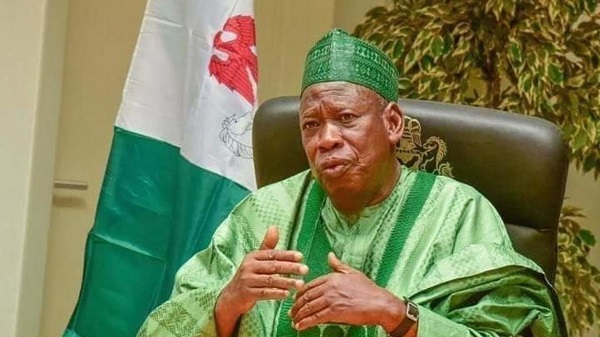
The Kano State government has been lauded by the National Social Protection Forum (NSPF) for committing 10 per cent of the state’s annual budget to the funding social protection programmes in the state.
This was contained in a statement jointly signed on behalf of the forum by Mr. Wale Elekolusi, Ayo Adebusoye Esq. and Fatima Abdulhafiz.
“The Kano State government, in line with the Federal Government’s roadmap, recognises the increasing relevance of social protection in engendering citizens’ rights to a life of dignity and promoting human and economic development.
“During the last decade, among developing countries especially, social protection has emerged as a viable policy framework employed globally to address poverty, social and economic vulnerabilities, inequality and exclusion, as well as other threats to sustainable development. The Kano State Social Protection Policy has been developed around critical policies and strategies for the revival and prosperity of the state’s economy.”
This singular act, the government said, will contribute to the achievement of the objectives of the state social protection policy which revolves around determining and periodically reviewing the social assistance envelope to support the poorest and the most vulnerable (including children, women, the elderly and persons living with disabilities) to achieve minimum acceptable standards of living, alleviate chronic poverty, ensuring that the uninsured are covered against adverse personal circumstances and life-cycle livelihood risks;, facilitating employment and promoting livelihoods, ensuring basic standards at work and extend access to social care services through community-based outreaches for poor and vulnerable individuals, households and groups.
Kano State has 44 LGAs and the coverage of basic social services (health and education) has expanded in response to population expansion and the proliferation of IDPs; to strengthen social protection institutional framework and coordination for sustainable service delivery.
The statement said the NSPF appealed to the state government to make the scheme a priority and ensure that its focus is guided by the signed Mutual Accountability Framework which contains the specific tasks and support available to programmes that will support good governance, improvement in economic recovery and investment as well as reduce poverty through human capital development, particularly in health, education and social protection.
Some of the specific aspects listed under the programme include human development and demography (health), human development and demography (education), sustainable economic transformation, governance and stability (core governance) and governance and stability (social protection).
“Therefore, we call on the state government to, in the wake of the 10 per cent budgetary commitment, prioritise the passage of the Social Protection Bill into Law by 2021 as captured under the governance and stability block (social protection) of the mutual accountability framework; Commit to a focused budgetary allocation for child protection services, as some appear subsumed in programs in many MDAs. There is no specific budget line for child protection in the state, as it is mostly donor-partner driven.
“Commit to integrating the Almajiri children into the state’s free, compulsory primary and basic education system and ensure that they are integrated into family structures and systems; Commit to the design and implementation of strategies to increase the enrolment of the girl child in educational pursuits. This will involve addressing infrastructure/system and socio-cultural barriers.
“Prioritise the passage into law of the proposed bill amendment 2021 for Persons with Disability with a key focus to establish the commission for PWDs by the end of 2022. This is captured on the signed mutual accountability framework for the state; Commit to a strategic linkage of productive opportunities for the growing youth population in the state.
“Commit to social assistance in the form of non-contributory transfers to those deemed eligible through transparent targeting by society because of their vulnerability or poverty; Commit to contributory social insurance systems, through (1) the development and strengthening of home-grown social security and health insurance systems and (2) strengthen the established social security and health insurance systems.
“Commit to the approval of the Kano State Gender and Social Inclusion Policy by the end of 2021 as captured in the mutual accountability framework,” it said.
The group further appealed to other state governments to make a similar commitment towards the design, coordination and implementation of social protection programmes in their states.
“Social protection is a veritable tool to bridge the gap of inequality and exclusion in our societies. It protects against shocks and vulnerabilities by addressing and reducing poverty. It is a foundation for a life of dignity throughout the lifecycle,” it added.


